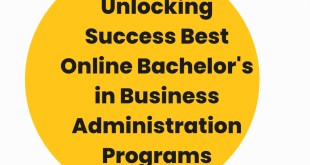everyone Want to improve Her Personal Finance Skills. i give you some tips To do That Very easy. Let’s Start To Doing This.
Identify your financial goals.
Start by identifying your financial goals. What do you want to achieve? Do you want to be debt-free? Do you want to retire early? Also you want to save for a rainy day fund or a specific purchase? Once you know your goals, you can develop a plan to achieve them. Are you on track to meet your goal when you need it? What stops you from meeting your goal, and how can you overcome those obstacles?
What have been the best strategies that have helped others reach their goals? How could these strategies help me with my financial success? Can I start taking steps today to achieve my debt-free goal, so I’m not paying interest on credit cards monthly?
Sometimes our goal may change over time, and we might need to adjust our strategy accordingly. Revisit your original list of goals every six months or so and see if any adjustments need to be made. For example, if you were trying to pay off your car loan within two years but now realize that three years would give you a better interest rate, you might want to rethink your strategy.
Use this opportunity to consider whether your current strategies will work better given the new timeline and make appropriate changes where necessary. Another good idea is to revisit this list as often as possible when going through life changes such as starting school or marriage. Setting yourself up for future success will only take a few minutes at first, but you can reap the rewards well into the future!
Take control over where your money goes.
You can do this by creating and following a budget. Determine your income and track your spending. Make sure your spending aligns with your goals and values. You may need to make adjustments to ensure that you live within your means. For example, if you find yourself overspending on clothes but having trouble saving for retirement, then cut back on clothing purchases or work on increasing your retirement contributions.
When making changes to your finances, try to be as specific as possible about what you’re trying to accomplish. While every individual’s financial situation is different, the tips in this post will help anyone get started on the path toward improving their financial skills.
Create a budget
Start by creating a budget. Determine your monthly income and expenses and track where your money is going. It will help you better understand where you can cut back on spending. Do not buy what you cannot afford: Do not buy things that are not in your budget or that you cannot afford.
Instead, save up until you have enough funds to purchase them. Use cash instead of credit cards: Using cash instead of credit cards will give you instant feedback on how much money is left in your account at any given time, making it easier to stick with a budget. Try to use debit cards instead: You still receive the same benefits as cash, but with debit cards, there are fewer fees associated.
Track your purchases to understand where your money goes: Tracking all your expenditures may seem tedious, but it can be very beneficial for people who want control over their finances. Knowing where your money has gone gives you more insight into managing it effectively.
Spend more time doing what matters most: Spending more time doing things that matter most to you will make everything else easier. Whether this means making extra sacrifices to spend more quality time with family members or just volunteering at the local soup kitchen, take some extra steps, so you don’t feel like something is missing in your life.
Prioritize saving: Saving should always be prioritized when managing personal finances because this ensures that anything unexpected doesn’t derail your plans. Take advantage of opportunities like investing in stocks and bonds and opening a Roth IRA to try and set yourself up for success long-term.
Start Investing
When it comes to personal finance, one of the most innovative things you can do is start investing. Investing allows you to grow your money while taking less risk than gambling or stock market speculation. And the best part is that you don’t need much money to start. You can open an investment account with as little as $500. It doesn’t take much to begin building wealth through investments.
If you want more advice on how to invest, read our post-Investing 101: The Basics for Beginners. In general, the two broad categories are stocks and bonds. A bond represents a loan between two parties usually the government or corporation where one party lends money to another party in exchange for regular interest payments over time and principal repayment when the bond matures.
Bonds typically offer lower yields than stocks but are generally safer because they have maturity dates, and investors know exactly what they will receive upon maturity. They also trade at prices that vary depending on supply and demand like other securities.
so investors know when their holdings have gone up in value because fewer bonds are available (supply) or down in value because more bonds are available (demand). Stocks represent ownership in a company whose shares can be bought and sold by shareholders.
Prepare for the unexpected
No one knows what the future holds, so it’s important to be prepared for anything coming your way. Unexpected expenses can include things like medical bills, car repairs, or home repairs. Having an emergency fund can help you cover these unexpected costs and prevent you from going into debt.
The easiest way to start building up an emergency fund is by making small contributions over time even $25 a month will add up! You’ll need at least three months’ living expenses before using it. A good rule of thumb is that if you can comfortably live on less than 75% of your income without feeling any stress, your emergency savings should be about three months’ worth of living expenses.
But if you’re barely scraping by, with no money left after covering all your expenses, it may be more appropriate to have six months’ worth of living expenses in case something unexpected happens. It’s also important to know how much debt you currently have and what interest rates they carry (both student and credit card loans).
If the interest rates are high, you may want to consolidate some of your higher-interest loans with lower-interest ones. If a financial hardship does happen in the future, use these tips wisely, as well as whatever other resources are available to get back on track.
Keep track of your expenses and income
You need to be aware of your current financial situation to get started. This means knowing how much money you have (your income) and going out (your expenses). You can do this by tracking your spending for a month or two. Once you understand your cash flow, you can start making changes to improve your finances.
The first step is to set goals. What are your short-term and long-term goals? Short-term goals might include reducing credit card debt, paying the car loan faster, saving up for a new computer, etc. Long-term goals might include saving for retirement or buying a house.
Setting these goals will give you something to work towards, making it easier to keep your finances in check. Next, list all your monthly recurring bills so that you know what needs to be paid each month:
- Rent/mortgage payment.
- Insurance premiums.
- Utilities (phone bill).
- Credit cards with minimum payments due each month.
- Student loans with fixed monthly payments due each time they come due, auto loans with fixed monthly payments due each time they come due. It’s
Important not to forget any regular payments that may pop up throughout the year: life insurance premiums; quarterly taxes; quarterly property taxes; cable/satellite TV subscriptions; club memberships; magazine subscriptions; gym memberships.
Diversify your portfolio
1. Diversify your portfolio by investing in a variety of asset classes. This will help reduce your risk and maximize your returns.
2. Consider using dollar-cost averaging when investing in new asset classes. This technique can help you reduce your overall risk by buying assets over time rather than all at once.
3. Review your portfolio regularly and rebalance it as needed. It will help ensure that your investments are aligned with your goals and risk tolerance.
4. Stay disciplined with your spending. Track where you are spending your money and look for ways to cut back on unnecessary expenses.
5. Invest in yourself by taking advantage of learning about personal finance and investing opportunities. Many organizations offer free resources, such as blogs, articles, podcasts, or webinars. You can also find personal finance courses offered through many universities or colleges.
6. Don’t fall victim to the sunk cost fallacy! Don’t continue to invest in something just because you’ve already put so much into it (and likely lost some money).
7. Utilize online tools and services like Mint or Quicken, which provide useful budgeting and tracking tools and valuable insights into how your finances compare against others like you.
8. Make sure that any financial advisor has their client’s best interests at heart before trusting them with your hard-earned cash!
Save for retirement
No matter how much money you make, it’s never too early to start saving for retirement. The earlier you start, the more time your money has to grow. Plus, you’ll be able to take advantage of compound interest. Here are a few retirement savings tips – Set up an automatic deposit from your paycheck into a 401(k) or IRA each month
– Invest in stocks, bonds, and mutual funds if you have enough time before retirement to ride out any downturns
– Aim for at least 20% of your income put towards retirement
– Use tools like an online calculator or financial advisor to determine what percentage you should save for retirement. If you’re unsure where to start, try estimating 10% of your gross income (before taxes).
– Create a budget: After figuring out how much you need to save for retirement, create a budget so that all other expenses are accounted for
– Pay off debt: Once you’ve created a budget, use the remaining balance on your credit card as well as student loans or car payments to pay off debt
– Calculate net worth: To calculate net worth, subtract total liabilities from total assets. Assets include anything that brings in money (such as investments), while liabilities include things that cost money (such as loans).
Here is some more important tips To Get Help You Don’t Miss:
Auto insurance company in Nigeria : How to find the best one



